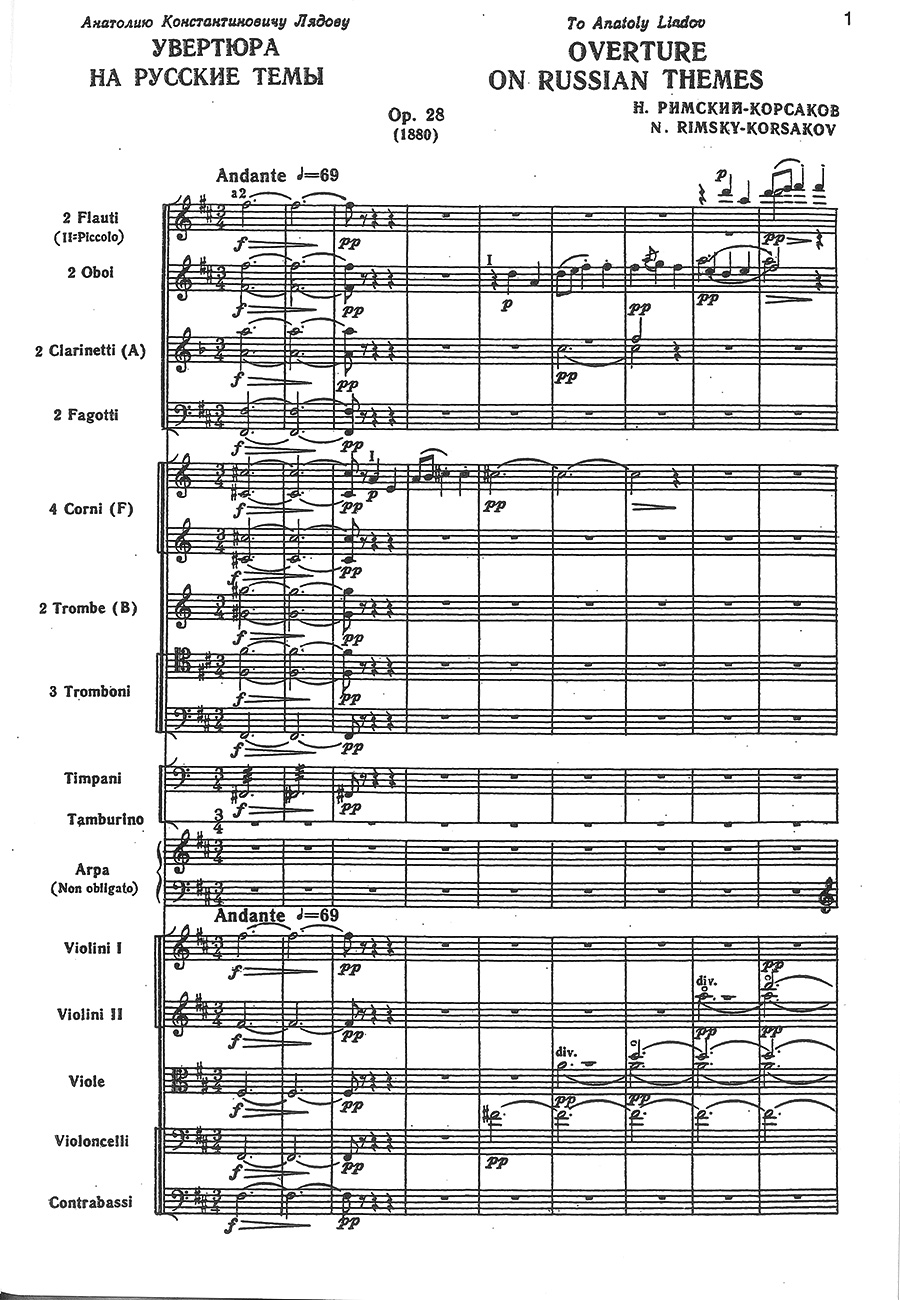Overture on three Russian Themes Op. 28 for orchestra (version 1855)
Rimsky-Korsakow, Nicolai
21,00 €
Preface
Nikolai Andreyevich Rimsky-Korsakov / Николай Андреевич Римский-Корсаков – Overture on Russian Themes
(18 March [O.S. 6 March] 1844, Tikhvin, Russia – 21 June [O.S. 8 June] 1908, at his Lubensk estate near Luga, Russia)
This early overture shows the influence of Rimsky-Korsakov’s mentor and friend, Mily Balakirev (1837-1910), who was an importance source of moral and educational support for Rimsky-Korsakov during his youthful days as an officer in the Imperial Russian Navy.
Although born two hundred kilometers outside of Saint Petersburg and having never seen the sea, Rimsky-Korsakov enrolled in the Naval Cadet Corps (now called the Peter the Great Naval Corps – St. Petersburg Naval Institute). During his studies there (from ages twelve to eighteen), he began piano lessons, attended opera and orchestral performances, and eventually took two years of piano and composition lessons with French pianist Théodore Canillé (known as Feodor Kanille). These private sessions (1859- 61) continued as informal opportunities for the young man to play piano duets. Canillé introduced him to Mily Balakirev, César Cui, and Modest Mussorgsky (still in their twenties). Rimsky-Korsakov later wrote, “With what delight I listened to real business discussions of instrumentation, part writing, etc.! And besides, how much talking there was about current musical matters! All at once I had been plunged into a new world, unknown to me, formerly only heard of in the society of my dilettante friends.”
Rimsky-Korsakov was mentored by Balakirev, who would sometimes interrupt him and recompose portions of works- in-progress at the piano through improvisation. Though he later found this stifling, Rimsky-Korsakov’s Memoirs praise Balakirev’s talents as a critic, coach, and improviser. The younger composer recalled: “A pupil like myself had to submit to Balakirev a proposed composition in its embryo, say, even the first four or eight bars. Balakirev would immediately make corrections, indicating how to recast such an embryo; he would criticize it, would praise and extol the first two bars, but would censure the next two, ridicule them, and try hard to make the author disgusted with them.” ….
Read full preface / Ganzes Vorwort > HERE
Score Data
| Edition | Repertoire Explorer |
|---|---|
| Genre | Orchestra |
| Pages | 70 |
| Size | 210 x 297 mm |
| Printing | Reprint |
